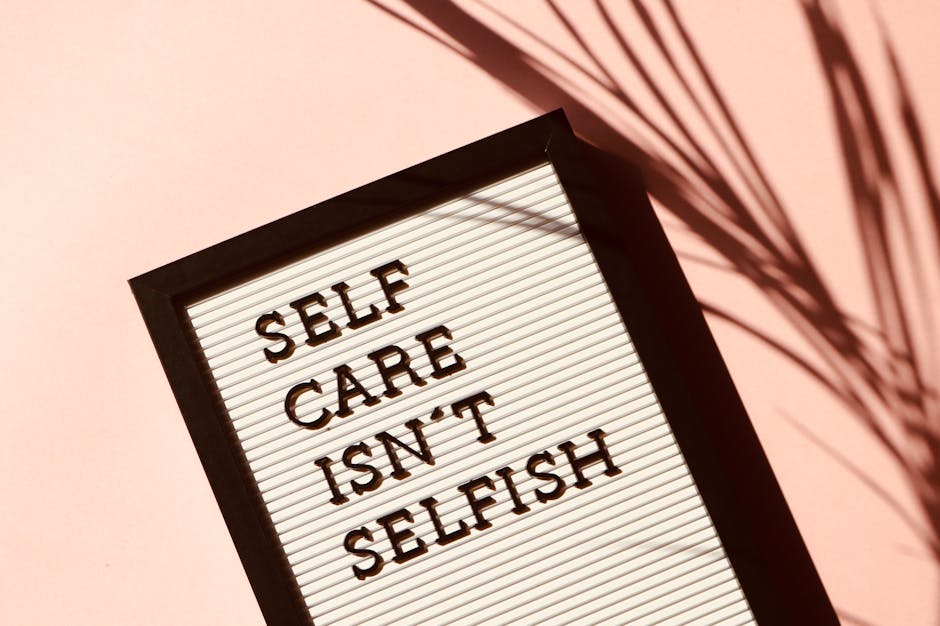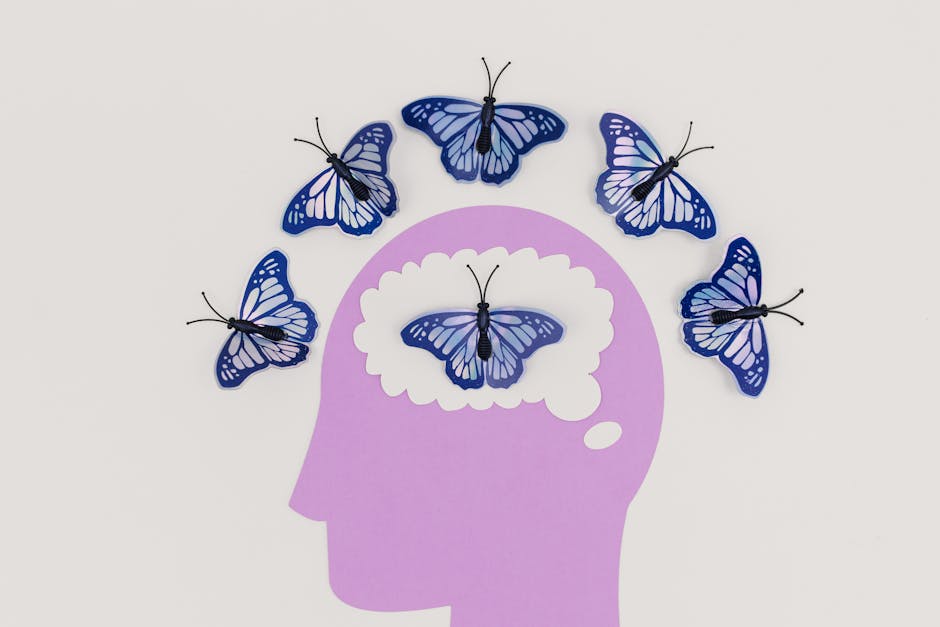Championing Women's Mental Wellness: Breaking the Silence in [Current Year] for Women's History Month
In [Current Year], as we celebrate Women's History Month, the spotlight on mental health for women has never been more critical. This period offers a unique opportunity to address the systemic issues and societal pressures that disproportionately affect women's mental well-being. From the pervasive challenges of depression and anxiety to the nuances of work-life balance and caregiving roles, understanding and providing robust support are paramount. We must foster an open dialogue, acknowledging that mental health is not a weakness but a fundamental aspect of holistic wellness. This guide aims to provide actionable strategies and insightful perspectives to empower women, advocating for better access to resources and fostering a community where assertive communication and emotional maturity are celebrated. By breaking the silence, we can collectively work towards a future where every woman feels supported and valued in her journey towards optimal mental health.
A vibrant illustration of diverse women engaging in supportive dialogue about mental wellness in a community setting
Decoding the Landscape of Women's Mental Health and Mental Wellness
The landscape of women's mental health is multifaceted, influenced by a complex interplay of biological, psychological, and social factors. Women often face unique mental health challenges, including higher rates of depression and anxiety, exacerbated by societal expectations, hormonal fluctuations, and the mental load associated with caregiving roles. Understanding this intricate web requires a biopsychosocial model approach, recognizing that individual experiences are shaped by broader ecological systems theory. For instance, workplace discrimination and gender-based violence significantly impact mental well-being, leading to increased stress, burnout, and trauma. This section delves into these specific stressors, providing context for the discussions and strategies that follow. Our goal is to equip readers with a comprehensive understanding of these underlying dynamics, fostering empathy and encouraging proactive engagement with mental health support systems.

An intricate infographic illustrating the interconnected factors influencing women's mental health and wellness journeys
Crucial Mental Health Insights: What This Guide Covers for Prioritizing Wellness
This comprehensive guide is designed to offer crucial mental health insights, empowering women to prioritize their wellness through practical strategies and informed perspectives. We will explore everything from understanding unique challenges like imposter syndrome and cognitive dissonance, to implementing effective self-care practices and mindfulness techniques. Our content will cover actionable advice on navigating careers, improving assertive communication, and building strong support networks. Additionally, we will shed light on the importance of open dialogue in reducing the stigma surrounding mental health, advocating for systemic change, and promoting gender equality. By delving into these essential areas, this guide aims to be a valuable resource for women seeking to enhance their mental well-being, build resilience, and lead more fulfilling lives.
A visually appealing graphic outlining the key topics and benefits covered within the mental wellness guide for women
The Undeniable Imperative: Why Women's Mental Health Conversations Matter Deeply
The imperative to engage in meaningful conversations about women's mental health cannot be overstated. Beyond individual struggles with depression, anxiety, or burnout, there are broader societal implications. When women's mental well-being is overlooked, it impacts families, communities, and national productivity. These conversations pave the way for early intervention, effective support, and the dismantling of harmful stereotypes. Addressing mental health challenges like postpartum depression, PTSD, or eating disorders requires an open dialogue, allowing women to share their experiences without fear of judgment. This collective effort fosters a culture of empathy and understanding, highlighting the need for tailored resources and policies that genuinely support women's holistic wellness and their unique life transitions.

A powerful image of diverse women united in an open forum, symbolizing collective strength and shared mental health experiences
Historical Context: Foundations of Women's Mental Health Challenges and Support
Historically, women's mental health has been frequently misunderstood, misdiagnosed, or even pathologized, often overlooked within broader healthcare systems. From the "wandering womb" theories of ancient times to the "hysteria" diagnoses of the Victorian era, societal perceptions have significantly influenced the recognition and treatment of women's mental health challenges. These historical foundations contribute to contemporary issues, including racial bias in diagnoses and the persistent stigma around seeking help. The evolution of support systems, however, shows a gradual shift towards more empathetic and evidence-based approaches. Recognizing this trajectory is vital for understanding current disparities and advocating for equitable mental health care. Engaging with resources like diverse topics and empowering discussions for women can provide deeper insights into historical resilience and ongoing advocacy.

A historical timeline graphic depicting significant milestones and setbacks in women's mental health understanding and treatment
Current Realities: Navigating Women's Mental Wellness in a Post-Pandemic Era
The post-pandemic era has introduced a new layer of complexity to women's mental wellness, amplifying existing challenges and creating novel stressors. Increased caregiving responsibilities, economic uncertainty, and heightened isolation have contributed to a surge in anxiety, depression, and burnout among women. The digital age, while offering connectivity, also presents its own pressures, including unrealistic expectations propagated through social media. Navigating these current realities demands a proactive approach to mental health, emphasizing the importance of self-care practices, robust support networks, and accessible professional help. Prioritizing wellness means acknowledging these contemporary influences and equipping women with the tools to build resilience and maintain cognitive function in an ever-changing world.

A modern visual depicting a woman balancing multiple responsibilities, symbolizing the post-pandemic mental load and stress
Exploring the Depths of Women's Mental Health: From Unique Challenges to Empowerment
Exploring the depths of women's mental health requires a nuanced understanding of the unique challenges they face, alongside a clear pathway toward empowerment and robust support. This journey acknowledges the profound impact of societal pressures, gender-based violence, and the historical marginalization of women's experiences within healthcare. It's about moving beyond simply identifying problems to actively cultivating resilience, fostering open dialogue, and building effective support systems. We aim to highlight how self-care practices, mindfulness techniques, and assertive communication can become powerful tools for navigating these complexities. The goal is to empower women to not only recognize their mental health needs but also to advocate for themselves and for systemic change, transforming personal struggles into collective strength and fostering enduring holistic wellness.

An illustrative graphic showing the journey from mental health challenges to empowerment with supportive elements
Crucial Mental Health Insights: What This Guide Covers for Prioritizing Wellness
Demystifying women's unique mental health challenges is crucial for breaking the silence that often surrounds these experiences. Women frequently encounter conditions like postpartum depression, premenstrual dysphoric disorder (PMDD), and perimenopausal mood changes, which are intrinsically linked to hormonal fluctuations and reproductive life stages. Beyond biological factors, societal expectations, such as the pressure to be a perfect caregiver or professional, contribute significantly to stress, anxiety, and burnout. Understanding these specific challenges, which can also include the disproportionate impact of trauma and gender-based violence, allows for more accurate diagnoses, tailored interventions, and empathetic support. By shedding light on these often-overlooked aspects, we aim to reduce stigma and encourage women to seek the mental health professional help they deserve.

An informative graphic outlining various unique mental health conditions and stressors predominantly affecting women
Understanding Cognitive Dissonance in Women's Mental Wellness Journeys
Cognitive dissonance plays a significant, yet often unrecognized, role in women's mental wellness journeys. This psychological discomfort arises when a woman holds conflicting beliefs, attitudes, or values, or when her actions contradict her values. For example, a woman may deeply value gender equality but find herself in a workplace where she experiences gender bias, leading to internal conflict, stress, and decreased motivation. This internal struggle can manifest as anxiety or even depression if left unaddressed. Understanding how cognitive dissonance impacts self-perception and emotional well-being is vital for developing coping mechanisms and fostering self-improvement. Recognizing these internal inconsistencies is the first step towards aligning one's actions with core values, thus promoting greater mental clarity and overall mental health.

A thought-provoking image illustrating the internal conflict of cognitive dissonance with abstract visual elements
Key Concepts: Recognizing Imposter Syndrome and People Pleasing in Mental Health
Recognizing imposter syndrome and people-pleasing tendencies is paramount in understanding women's mental health. Imposter syndrome, where individuals doubt their accomplishments and fear being exposed as a "fraud," disproportionately affects high-achieving women, leading to chronic anxiety and feelings of inadequacy. This often intertwines with people-pleasing, a behavior driven by the desire for external validation and fear of rejection, which can lead to burnout and a neglect of personal needs. Both concepts contribute to significant stress, impacting not only personal mental well-being but also professional careers. Addressing these patterns through assertive communication and self-compassion is crucial for building self-esteem and fostering genuine self-improvement, ultimately bolstering holistic wellness and reducing instances of depression and anxiety.

A conceptual image depicting a woman masked by expectations, representing imposter syndrome and people-pleasing behaviors
Important Factors: The Michelangelo Effect and Its Influence on Self-Perception
The Michelangelo Effect, a phenomenon where romantic partners affirm and sculpt each other toward their ideal selves, holds important implications for women's mental health and self-perception. While often discussed in romantic relationships, this effect can extend to any significant interpersonal support system, highlighting the power of positive reinforcement and validation. For women, who frequently contend with societal pressures and unrealistic beauty standards, having a support network that sees and encourages their ideal self can significantly boost self-esteem and resilience. Conversely, unsupportive or critical relationships can hinder growth and exacerbate feelings of self-doubt. Understanding this dynamic underscores the importance of surrounding oneself with individuals who foster empowerment and contribute positively to one's mental wellness journey.

An artistic rendering of two hands gently shaping a figure, symbolizing the Michelangelo Effect in supportive relationships
Critical Analysis: Confronting Women in STEAM Challenges and Workplace Challenges
A critical analysis of women in STEAM careers and broader workplace challenges reveals systemic issues that profoundly impact mental health. Despite progress, women still encounter significant hurdles such as gender bias, lack of role models, and microaggressions, which can lead to feelings of isolation and decreased motivation. The pressure to constantly prove competence, often in environments designed by and for men, contributes to stress, burnout, and mental well-being concerns. Addressing these challenges requires more than individual resilience; it demands systemic change, including robust mentorship programs, policies promoting gender equality, and fostering an inclusive culture. Open dialogue about these issues is vital to create workplaces where women can thrive, feel supported, and achieve their full potential without compromising their mental health.

A professional depiction of women collaborating in a STEAM field, highlighting both their presence and underlying challenges
Critical Elements: Addressing Gender Bias and Microaggressions in Professional Settings
Addressing gender bias and microaggressions in professional settings is a critical element in fostering women's mental health. These subtle, often unconscious, forms of discrimination can accumulate to create a hostile work environment, eroding self-confidence and increasing stress. Examples include being interrupted more frequently, having ideas attributed to male colleagues, or facing assumptions based on gender rather than merit. The constant need to navigate such dynamics can lead to chronic anxiety, decreased motivation, and feelings of resentment, significantly impacting mental well-being and career progression. Effective strategies include implementing unconscious bias training, encouraging assertive communication, and establishing clear reporting mechanisms to ensure every woman feels valued and respected.
An illustration of subtle workplace interactions, depicting instances of microaggressions and gender bias in professional settings
Best Practices: Fostering Resilient Minds and Support Wins in Competitive Environments
Fostering resilient minds and securing support wins are best practices for women navigating competitive environments. This involves developing robust coping mechanisms to manage stress and setbacks, alongside building a strong network of allies and mentors. Resilient women embrace challenges as opportunities for growth, viewing failures as learning experiences rather than definitive defeats. Strategies such as developing assertive communication skills, setting firm boundaries for work-life balance, and actively seeking out sponsors can significantly enhance one's ability to thrive. Furthermore, participating in women's support groups or professional organizations provides invaluable peer support and collective wisdom, reinforcing the message that no one has to face these challenges alone. Prioritizing mental health through these proactive measures is key to long-term success.

A visual metaphor of a strong plant growing through concrete, symbolizing resilience and triumph in competitive professional environments
The Undeniable Imperative: Why Women's Mental Health Conversations Matter Deeply
Empowering strategies for women's mental well-being focus on prioritizing wellness through a comprehensive, proactive approach. This involves integrating self-care practices, developing assertive communication skills, and building resilient mindsets. From structured mindfulness techniques to leveraging strong social support networks, these strategies are designed to combat the unique stressors women face, including those related to careers, relationships, and societal expectations. The emphasis is on cultivating emotional maturity and fostering a sense of self-worth that is independent of external validation. By adopting these methods, women can enhance their cognitive function, reduce the prevalence of depression and anxiety, and ultimately achieve a more balanced and fulfilling life. This section provides actionable insights to help every woman on her journey toward sustained mental health.
A diverse group of women engaging in various self-care and wellness activities, symbolizing empowerment and collective mental well-being
7-Step Implementation Guide: Cultivating Self-Care and Mindful Mental Health
Cultivating self-care and mindful mental health can be achieved through a structured 7-step implementation guide designed for women. Firstly, identify personal stress triggers and early warning signs of decreased motivation. Secondly, establish a non-negotiable daily self-care routine, incorporating activities like meditation or deep breathing exercises. Thirdly, practice assertive communication to set healthy boundaries in personal and professional relationships, essential for work-life balance. Fourthly, prioritize physical health through regular exercise and balanced nutrition, which profoundly impacts cognitive function. Fifthly, nurture meaningful social connections to build a strong support system. Sixthly, engage in regular reflection and journaling to process emotions and foster emotional maturity. Finally, seek professional support when needed, recognizing that reaching out is a sign of strength, not weakness.

An infographic outlining a clear 7-step process for developing a personalized self-care and mindfulness routine for women
Step-by-Step Process: Integrating Mindfulness for Women and EMDR Certified Techniques
Integrating mindfulness for women and leveraging EMDR certified techniques offers a powerful, step-by-step process for enhancing mental health. Mindfulness practices, such as focused breathing and body scans, cultivate present-moment awareness, reducing anxiety and stress by detaching from ruminating thoughts. For women who have experienced trauma, EMDR (Eye Movement Desensitization and Reprocessing) therapy provides a structured approach to process distressing memories and reduce their emotional impact, offering significant support for issues like PTSD. This dual approach can be highly effective: mindfulness builds daily resilience and emotional regulation, while EMDR targets deeper psychological wounds. Seeking a certified EMDR therapist in conjunction with consistent mindfulness practices can lead to profound self-improvement and long-term mental well-being, fostering a greater sense of peace and internal stability.
A serene image of a woman meditating, with subtle visual cues representing EMDR therapy's calming effects
Common Challenges: Overcoming Parenting Challenges and Modern Motherhood Stressors
Overcoming parenting challenges and modern motherhood stressors is vital for women's mental health. The idealized image of motherhood often clashes with the reality of constant demands, sleep deprivation, and the mental load of managing a household and careers. This can lead to increased anxiety, depression, and burnout. Strategies for coping include developing assertive communication with partners and family members to share responsibilities, creating a strong support network with other mothers, and practicing radical self-compassion. It's crucial to acknowledge that perfection is unattainable and to prioritize self-care without guilt. Seeking professional guidance for issues like postpartum depression is a sign of strength, ensuring both mother and family receive the necessary support to thrive.

A poignant image depicting the complexities and joys of modern motherhood, with subtle elements of stress and support
Advanced Techniques: Boosting Motivation and Emotional Maturity for Women's Mental Wellness
Advanced techniques for boosting motivation and emotional maturity are essential for sustained women's mental wellness. These include developing a growth mindset, where challenges are viewed as opportunities for learning rather than insurmountable obstacles, which significantly enhances cognitive function. Practicing assertive communication allows women to articulate their needs and boundaries effectively, preventing burnout and fostering healthier relationships. Another powerful technique is embracing the concept of a "micro-retirement" – taking shorter, more frequent breaks to recharge, rather than adhering to the traditional concept of retirement, which can significantly improve mental well-being. By integrating these strategies, women can cultivate profound self-improvement, fostering resilience and a deeper sense of internal control over their emotional landscape, thus reducing depression.
A dynamic visual showing a woman confidently embracing new challenges, representing growth mindset and emotional maturity
Expert Tips: Strategic Networking Strategies and Open Dialogue for Growth
Expert tips on strategic networking and fostering open dialogue are crucial for women's personal and professional growth, directly impacting their mental health. Effective networking goes beyond exchanging business cards; it involves building genuine connections that offer mentorship, collaboration, and support. For women, who often face unique challenges in careers and leadership roles, a robust network can provide invaluable insights, opportunities, and a sense of community. Engaging in open dialogue, especially about women's topics and shared experiences, creates safe spaces for vulnerability and collective problem-solving. This fosters understanding, reduces feelings of isolation, and empowers women to navigate complex professional landscapes with greater confidence and less anxiety.

A professional setting with diverse women engaging in lively and supportive networking conversations, symbolizing growth and connection
Optimization Strategies: Harnessing the Power of Non Appearance Compliments and Micro-Retirement
Optimization strategies for women's mental wellness include harnessing the transformative power of non-appearance compliments and the innovative concept of micro-retirement. Non-appearance compliments, which praise intelligence, kindness, or skill rather than physical attributes, actively combat societal pressures around beauty and build genuine self-esteem, fostering mental health. This shifts focus from external validation to internal strengths, promoting a healthier self-perception. Furthermore, incorporating micro-retirements – short, intentional breaks throughout the year – offers a refreshing alternative to traditional, distant retirement plans. These mini-breaks, whether a long weekend or a few days of focused self-care, prevent burnout, reduce stress, and rejuvenate mental well-being, enhancing productivity and overall life satisfaction without the long wait.
A conceptual image showing a woman receiving a compliment about her intelligence, contrasted with a serene micro-retirement scene, symbolizing holistic well-being
Historical Context: Foundations of Women's Mental Health Challenges and Support
Spotlighting progress and looking towards future horizons in women's mental health reveals significant strides, yet also underscores the vast work ahead. This section celebrates women's achievements in mental health advocacy, recognizing the growing awareness and the dismantling of long-held stigmas. We examine how empowering conversations are changing narratives and fostering understanding, particularly through platforms that encourage open dialogue about women’s topics, challenges, and triumphs. Beyond traditional therapeutic approaches, there's a growing emphasis on holistic wellness, incorporating diverse cultural practices and community-based support systems. The trajectory indicates a future where mental health support is more accessible, inclusive, and tailored to the unique needs of women across all demographics, driven by ongoing research and advocacy.

An inspiring graphic depicting a bright horizon with diverse women moving forward, symbolizing progress and hope in mental health advocacy
Inspiring Case Studies: Women's Activism and Mental Wellness Success Stories
Inspiring case studies of women's activism and mental wellness success stories provide powerful examples of resilience and the impact of collective support. From grassroots movements advocating for accessible mental health services to individual narratives of overcoming severe depression or PTSD through advocacy, these stories highlight the transformative power of shared experiences and active listening. These women have not only navigated their own mental health challenges but have also become advocates for systemic change, challenging racial bias in healthcare and fostering open dialogue within their communities. Their journeys underscore the importance of seeking and offering support, demonstrating how personal struggles can be transformed into opportunities for empowerment and broader societal impact, driving crucial conversations about women’s mental health.

A collection of diverse portraits of women who have successfully advocated for mental health, radiating strength and resilience
Success Stories: How Amanda Covalt and Others are Breaking the Silence in Mental Health
Success stories like Amanda Covalt's exemplify how individuals are courageously breaking the silence in mental health. Amanda's journey, and others like hers, illustrate the profound impact of sharing personal struggles with depression, anxiety, or burnout and advocating for greater awareness and support. These narratives often highlight the critical role of assertive communication, self-care, and professional intervention, transforming personal challenges into platforms for empowering conversations. By openly discussing their mental health journeys, these women inspire others to seek help, challenge the stigma, and foster a more empathetic environment. Their stories serve as powerful testaments to resilience, demonstrating that recovery and mental wellness are achievable, even in the face of significant obstacles.
A compelling portrait of Amanda Covalt, symbolizing her leadership in mental health advocacy and breaking the silence
Lessons Learned: From Pet Peeves to Prioritizing Wellness in Diverse Communities
Lessons learned from addressing everything from minor pet peeves to major systemic issues are critical for prioritizing wellness in diverse communities. This includes understanding the unique cultural, socioeconomic, and racial biases that impact mental health access and quality of support. Open dialogue and empathy are essential tools to foster understanding and reduce stigma across various groups. For example, recognizing how differing family recipes might signify cultural identity can inform more inclusive community wellness programs. Prioritizing wellness means moving beyond a one-size-fits-all approach, instead developing culturally competent mental health resources and support systems that resonate with the diverse experiences of all women, ensuring equitable access and effective outcomes.

A diverse community gathering engaged in wellness activities, illustrating inclusive support systems and shared learning
Forecasting the Future: Emerging Developments in Women's Mental Health Conversations
Forecasting the future of women's mental health conversations points to exciting emerging developments, driven by technology and a younger generation's open approach to mental well-being. We anticipate a greater emphasis on personalized mental health interventions, leveraging AI and digital platforms to provide accessible and tailored support. The integration of holistic wellness practices, including alternative therapies and community-based initiatives, will become more mainstream. Furthermore, increased advocacy for mental health in policy-making, particularly concerning gender equality and workplace discrimination, will lead to more robust systemic support. The ongoing efforts to reduce stigma through education and open dialogue will ensure that mental health is increasingly viewed as a fundamental aspect of overall health, paving the way for a more supportive and understanding society.

A futuristic cityscape with integrated wellness symbols, representing advanced developments in mental health support
Emerging Developments: Gen Z Lingo and the Soundtrack of Generations in Mental Well-being
Emerging developments in mental well-being are significantly shaped by Gen Z lingo and the soundtrack of generations. Gen Z's comfort with open dialogue about mental health, often expressed through their unique Gen Z vocabulary and internet slang, is breaking down traditional barriers and fostering a more accepting environment for seeking support. Podcasts like empowering conversations on women’s topics, which explore everything from music history to pop culture knowledge, help bridge generational gaps and normalize discussions around mental health challenges such as anxiety and depression. Understanding this cultural shift is crucial for developing relevant and effective mental health resources that resonate with younger demographics, ensuring that future support systems are inclusive, engaging, and reflective of contemporary communication styles.

A vibrant illustration blending Gen Z lingo, music notes, and diverse faces, symbolizing intergenerational mental wellness conversations
Predictions: The Role of Mobile Henna and Activities, Events, Classes in Future Wellness
Predictions for future wellness highlight the growing role of creative expressions like mobile henna and a diverse array of activities, events, and classes in supporting mental health. Beyond traditional therapeutic settings, engaging in artistic and community-based activities can provide significant stress relief and foster social connections, vital components of holistic wellness. Mobile henna, for instance, offers a unique blend of cultural artistry, mindfulness, and personal expression, contributing to emotional well-being and reducing anxiety. Similarly, participation in various events and classes, from yoga to cooking family recipes, builds community, reduces isolation, and offers avenues for self-improvement and joy, which are crucial for combating depression and enhancing overall quality of life.
A colorful scene depicting mobile henna artists and various community wellness classes, emphasizing creative and social aspects of future mental health support
Sustaining Momentum: Continuous Mental Wellness for Women Beyond International Women’s Day
Sustaining momentum for continuous mental wellness for women extends far beyond International Women’s Day. While celebratory events are important, true progress requires consistent effort, ongoing support, and a commitment to systemic change throughout the year. This involves embedding mental health literacy into educational curricula, advocating for equitable access to mental health professional services, and normalizing open dialogue in every aspect of life – from family conversations to workplace policies. Prioritizing wellness means recognizing that mental health is a continuous journey, not a destination, requiring sustained attention to self-care, community building, and advocacy for gender equality. Our collective responsibility is to ensure that the foundational discussions initiated during Women's History Month evolve into tangible, long-term support systems.
A symbolic image of a continuous loop or upward arrow, representing sustained effort and ongoing momentum in women's mental wellness beyond a single day
The Undeniable Imperative: Why Women's Mental Health Conversations Matter Deeply
To recap, this guide has provided essential mental health insights and practical strategies for prioritizing wellness among women. We've explored the unique challenges women face, from cognitive dissonance and imposter syndrome to workplace gender bias and the mental load of modern motherhood. Crucially, we’ve emphasized the importance of self-care practices, assertive communication, and building strong support networks to foster resilience and emotional maturity. The integration of mindfulness, EMDR certified techniques, and innovative approaches like micro-retirement offers a comprehensive toolkit for enhancing mental well-being. Ultimately, fostering open dialogue, reducing stigma, and advocating for systemic change are paramount in creating a society where every woman can thrive, free from the burdens of untreated depression and anxiety.

An infographic summarizing key takeaways and actionable wellness practices discussed throughout the guide for women's mental health
Historical Context: Foundations of Women's Mental Health Challenges and Support
In empowering final thoughts, embracing open dialogue remains the cornerstone for lasting mental well-being among women. The courage to speak openly about mental health challenges like depression, anxiety, or burnout not only provides personal relief but also creates a ripple effect of understanding and support throughout communities. This open dialogue breaks down the isolation and hopelessness that often accompany mental health struggles, fostering a sense of collective strength and empathy. It empowers women to seek the help they need, knowing they are not alone. By continuing to share stories, challenge stigmas, and advocate for accessible resources, we cultivate an environment where mental health is prioritized, validated, and integrated into every aspect of life, ensuring holistic wellness for all.
A diverse group of women engaged in an open and supportive conversation, symbolizing the power of dialogue for mental well-being
Current Realities: Navigating Women's Mental Wellness in a Post-Pandemic Era
Your call to action is clear: join the burgeoning movement for women's mental health conversations. This is an invitation to contribute actively to a culture where mental wellness is not a taboo, but a celebrated priority. Whether it’s by sharing your own story, offering support to a friend, advocating for better workplace policies, or participating in a women's support group, every action contributes to reducing stigma and fostering understanding. Engage with resources that empower and inform, and commit to ongoing self-care. By raising your voice and supporting others, you become an essential part of a collective effort to ensure that mental health support is accessible, effective, and tailored to the unique needs of women, driving real and lasting change.
A dynamic image of diverse women raising their hands in solidarity, symbolizing collective action and advocacy for mental health
Next Steps for Collective Empowerment: Building Stronger Mental Wellness Communities
The next steps for collective empowerment involve actively building stronger mental wellness communities for women. This means investing in local initiatives, supporting organizations dedicated to women's mental health, and fostering environments where assertive communication and open dialogue are encouraged. Consider volunteering, organizing local events focused on mental well-being, or simply being an active listener within your social circles. Expanding access to culturally competent mental health services and advocating for policies that address systemic inequalities are also crucial. By working together, we can create resilient communities that offer unwavering support, reduce the prevalence of depression and anxiety, and ensure that every woman has the resources she needs to navigate her mental health journey with confidence and dignity.
A vibrant community scene with women participating in various group activities, symbolizing collective empowerment and strong mental wellness networks
Demystifying Women's Unique Mental Health Challenges: Breaking the Silence
Cultivating resources is paramount for providing further support for women's mental health and self-care. This involves actively seeking out and utilizing a diverse range of tools, from digital apps offering mindfulness techniques to local women's support groups. Prioritize engaging with mental health professional services, such as Cognitive Behavioral Therapy (CBT) or counseling, particularly for persistent challenges like depression or anxiety. Explore educational content that promotes self-improvement and emotional maturity, enhancing your understanding of psychology. Remember that resources extend beyond professional help; they include personal self-care practices like journaling, exercise, and connecting with nature. Building a robust toolkit of resources empowers women to proactively manage their mental well-being and thrive in all aspects of their lives.
A collection of diverse mental health resources including books, apps, and support group symbols, emphasizing comprehensive support and self-care













